The FBI has issued a critical warning to over 150 million iPhone users across the United States, urging immediate action if they receive a suspicious text message claiming to be from the Department of Motor Vehicles (DMV). The seemingly routine message, which appears legitimate at first glance, is part of a rapidly spreading scam that’s surging across the country.
A New Scam Surge Targeting iPhone and Android Users
Text scams are nothing new, but the latest wave has authorities on high alert. According to Forbes, smishing attacks — a form of phishing via SMS — have skyrocketed by more than 700% this month alone, affecting both iPhone and Android users. The scam involves a cleverly disguised text that impersonates a local or state DMV office, warning recipients about unpaid tolls, traffic fines, or pending legal consequences.
The message typically reads something like:
“DMV Notice: Unpaid toll detected. Failure to resolve may result in license suspension or legal action. Click here to pay now.”
Along with this urgent-sounding note is a link that leads unsuspecting victims straight into the hands of cybercriminals.
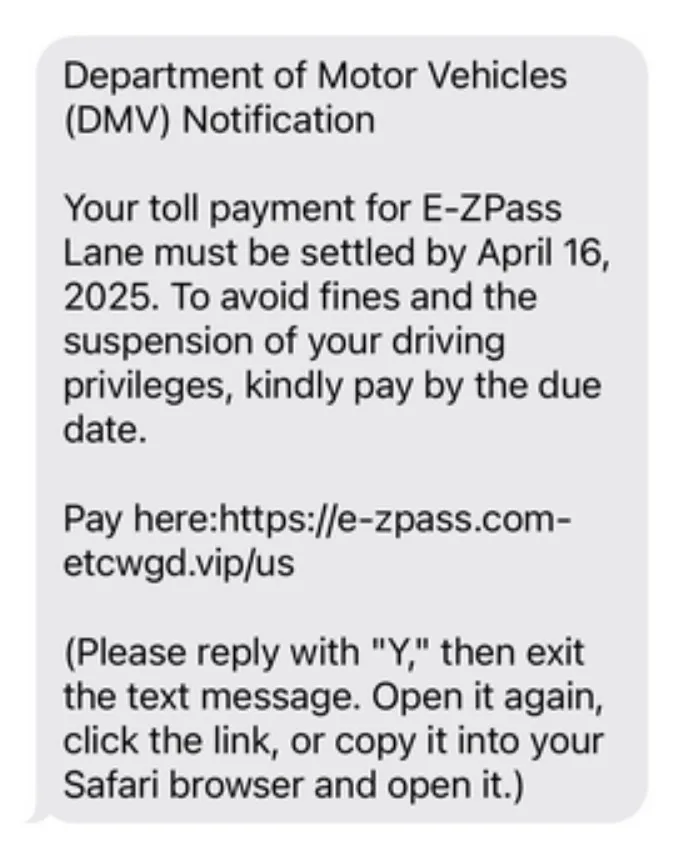
Why This Text Is So Dangerous
The FBI warns that the text message is entirely fake and designed to steal your personal and financial data. Clicking the link can trigger a chain reaction that allows malicious software — or malware — to infect your phone. Once installed, the malware can do serious damage:
- Access sensitive files
- Steal saved credit card information
- Monitor your activity
- Harvest login credentials for banking and shopping apps
“These kinds of messages can put malware on your phone, which then can go in and steal information from your device or collect your payment information,” said David Palmer, Supervisory Special Agent with FBI Tennessee. “If you receive a link from a number you don’t recognize, never click on it.”
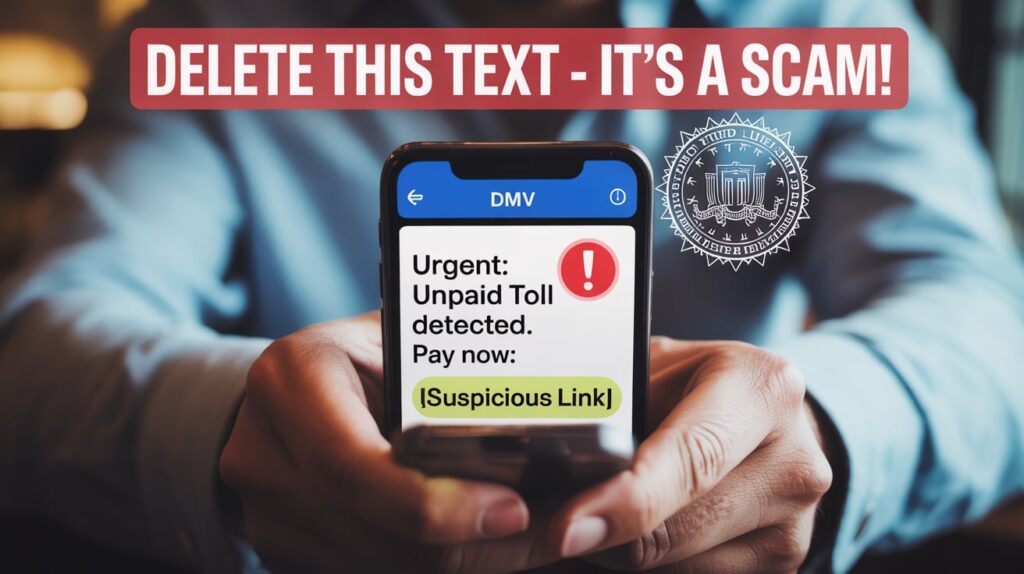
How the Scam Works
The scam plays on fear and urgency — two emotional triggers that often cause people to act without thinking. It pretends to come from a trusted government agency (DMV), claims there’s a serious problem (unpaid tolls or fines), and offers a quick solution (a link to resolve the issue). But instead of fixing anything, the link redirects to a phishing site that asks for:
- Full name
- Address
- Social Security number
- Credit or debit card details
- Sometimes even your driver’s license number
Once you enter the information, it’s captured by criminals who can use it for identity theft, unauthorized purchases, or selling your data on the dark web.
States Most Affected So Far
The scam has been reported in multiple states, with Tennessee, New York, California, Florida, Georgia, Illinois, Texas, and Washington, D.C. being the most affected. However, law enforcement warns that this is a national scam, and anyone in the U.S. could receive the message.
The DMV Isn’t Texting You
New York State DMV Commissioner Mark J. F. Schroeder reminded the public that the DMV does not send unsolicited texts demanding payment or requesting sensitive information. “These scammers flood phones with texts, hoping to trick unsuspecting people into handing over their personal information,” he said.
If you receive a message claiming to be from the DMV, you can verify its legitimacy by directly contacting your state’s motor vehicle department or checking your account on the official DMV website — not through any link sent via text.
What You Should Do If You Receive the Scam Text
If a text like this shows up on your phone, the FBI’s advice is crystal clear:
- Do not respond to the message.
- Do not click on any links.
- Delete the text immediately.
- Report it to the FBI’s Internet Crime Complaint Center (IC3) at www.ic3.gov.
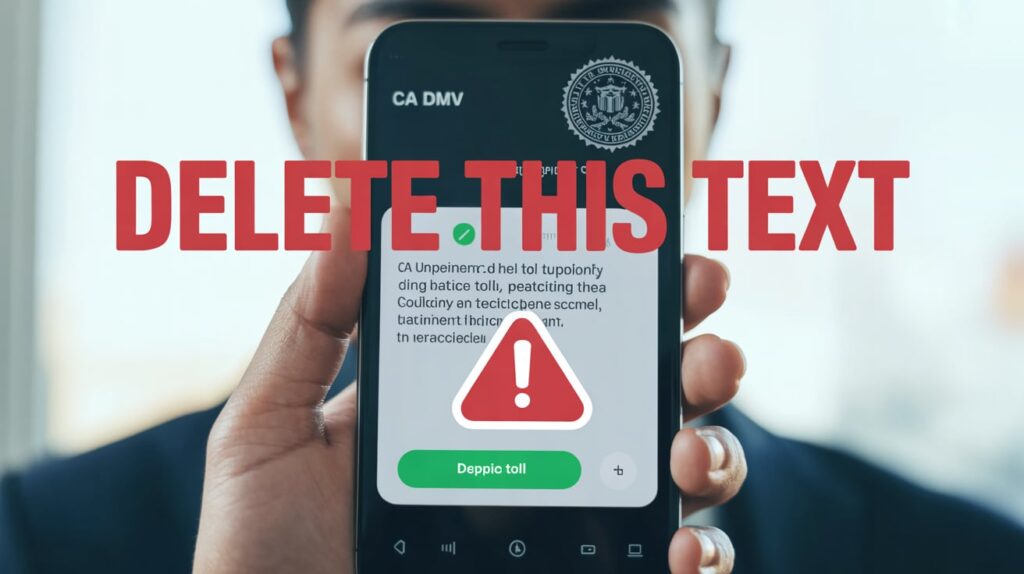
Cybersecurity experts also suggest running a mobile security scan or using a trusted malware protection app like Guardio if you accidentally clicked the link. Guardio told Forbes that these phishing sites are specifically designed to look convincing and extract as much sensitive information as possible in a short amount of time.
How to Stay Safe from Future Scams
Scammers are becoming more sophisticated, but there are clear signs and steps you can follow to protect yourself:
- Never click on links from unknown senders.
- Look for poor grammar or generic greetings — legitimate organizations typically use your full name.
- Turn on spam filters on your phone to detect and block scam texts.
- Enable two-factor authentication on all important accounts.
- Keep your device’s operating system up to date, as updates often include critical security patches.
Who to Contact for Help
In addition to reporting the scam to the FBI’s IC3, victims can also reach out to:
- Your state’s DMV to alert them to the impersonation
- The Federal Trade Commission (FTC) at www.reportfraud.ftc.gov
- Your bank or credit card provider, if you entered any payment details
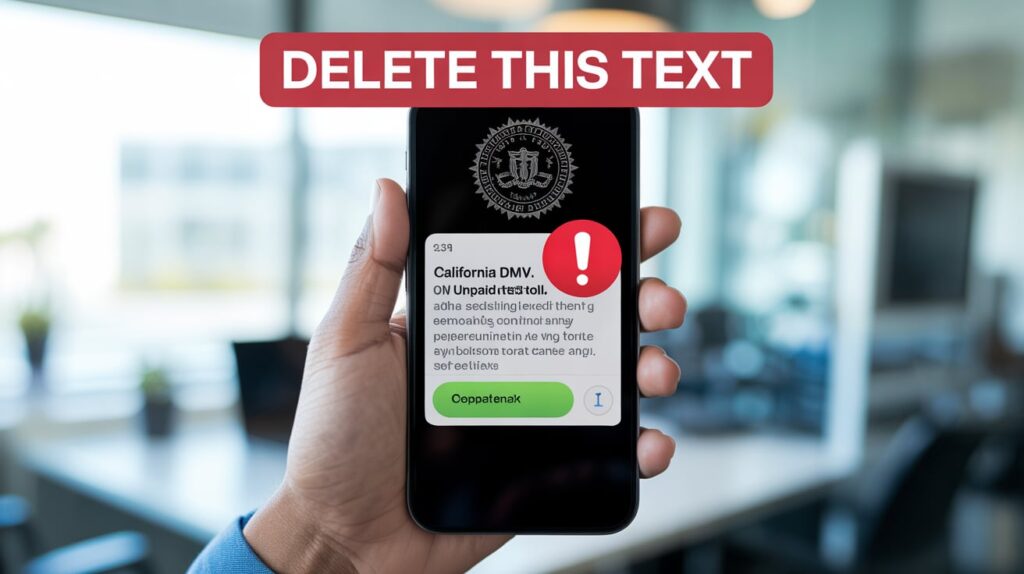
Fast reporting can help prevent additional financial loss and also helps authorities track and shut down phishing networks.
Final Thoughts: Don’t Be the Next Victim
The sheer scale and sophistication of this scam highlights a new era in cybercrime — one that’s targeting Americans where they least expect it: on their phones, via texts that look alarmingly real.
Remember: The DMV will never threaten legal action via text, and legitimate agencies don’t send payment demands with sketchy links. Stay alert, trust your instincts, and when in doubt — delete the message and report it.


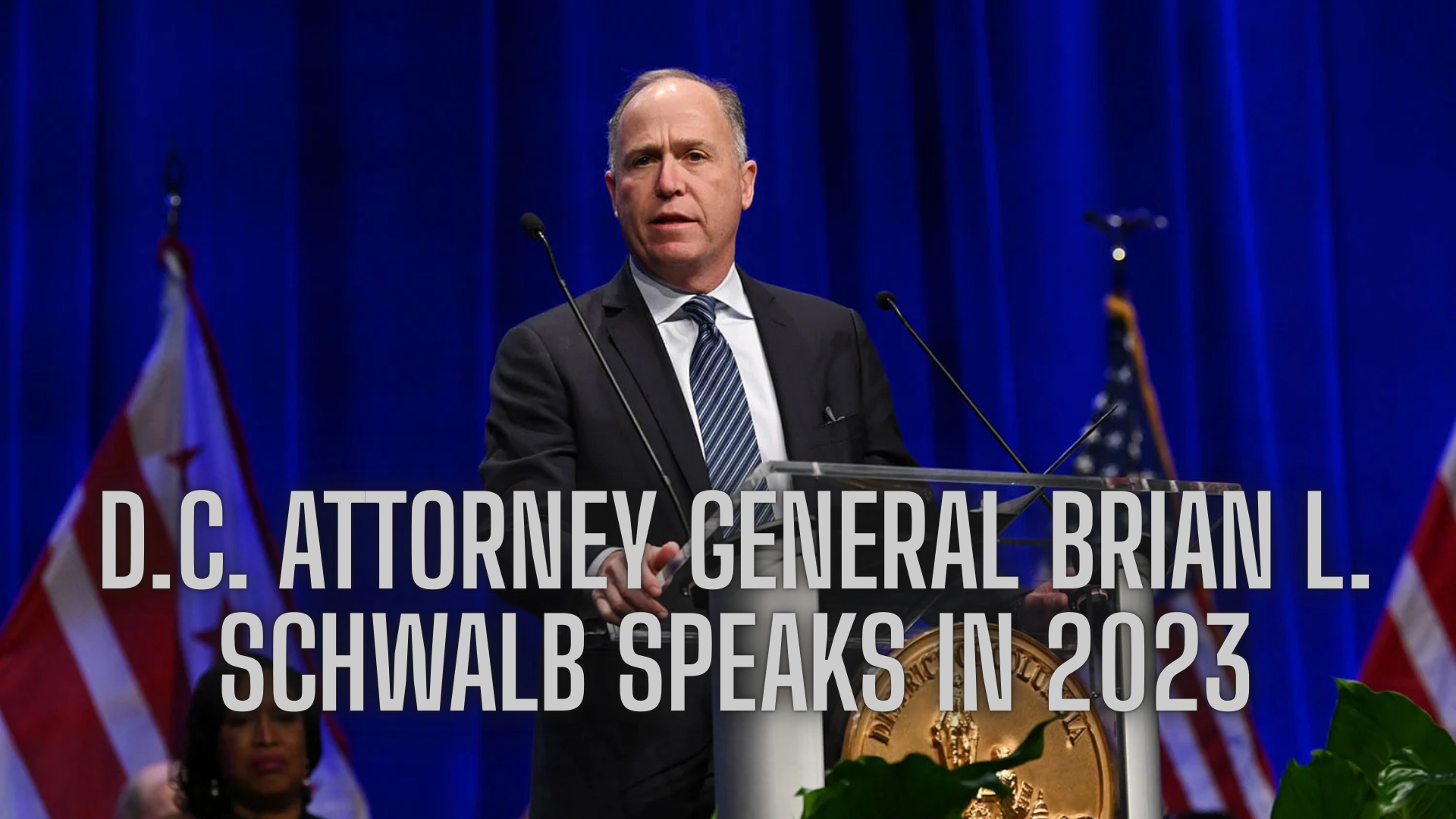
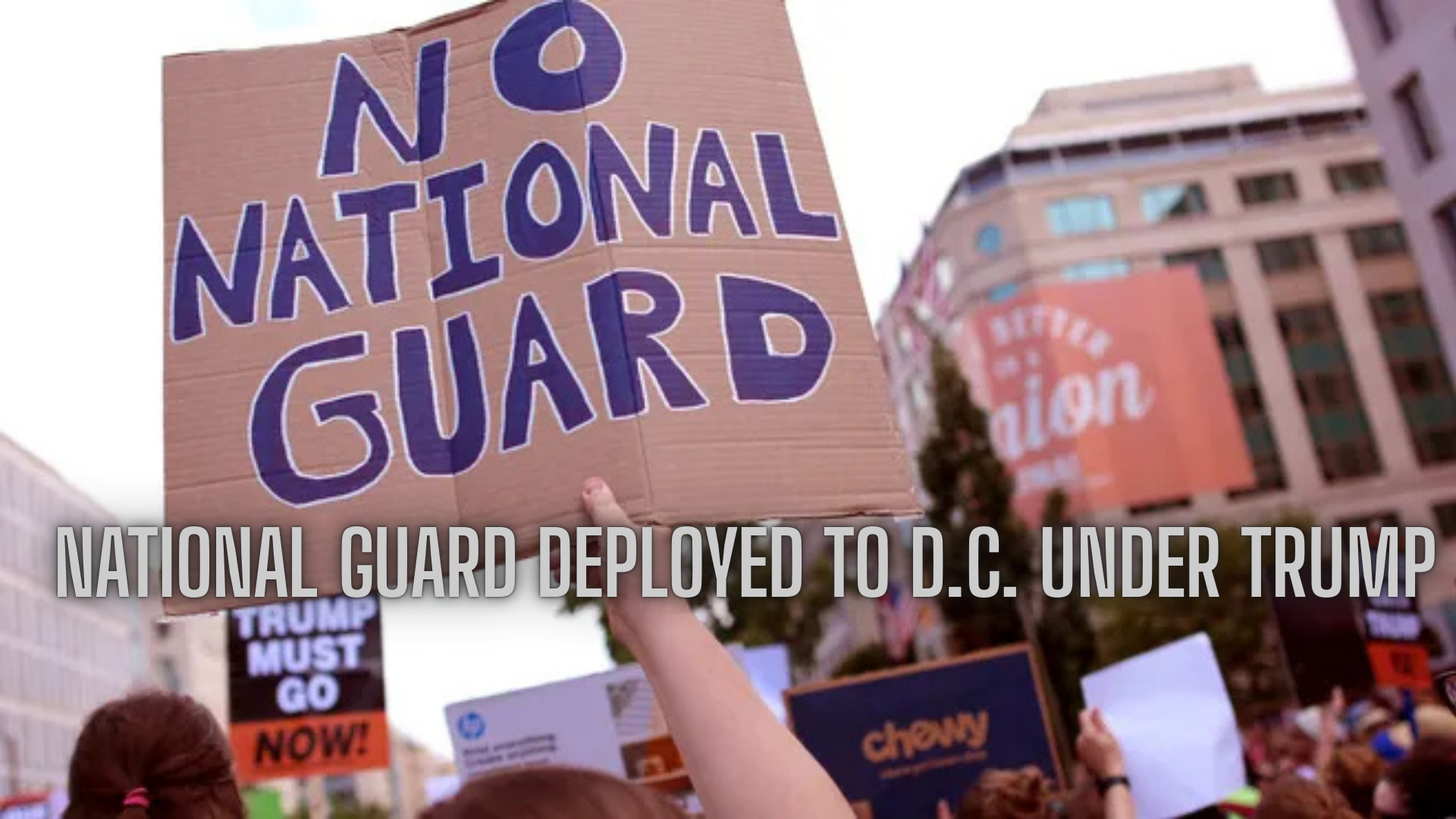
3 thoughts on “FBI Issues Urgent Warning to iPhone Users: Delete This Scam Text Immediately”